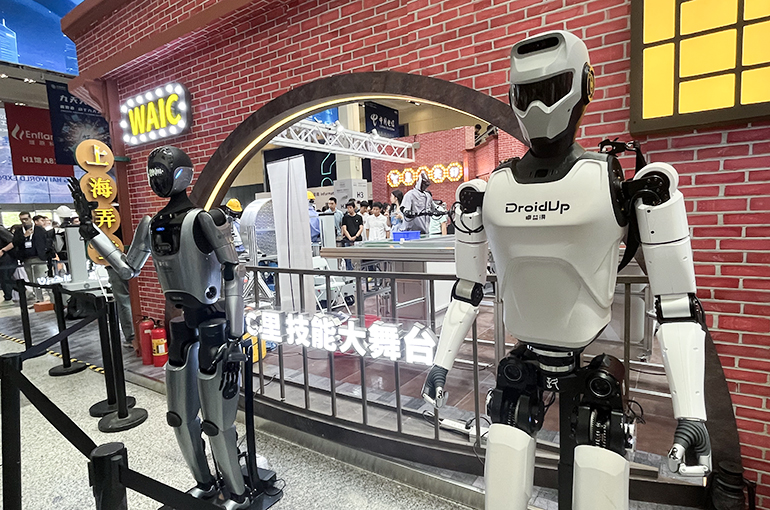 Humanoid Robot Sector Awaits Its ‘iPhone Moment,’ Tencent Executive Says
Humanoid Robot Sector Awaits Its ‘iPhone Moment,’ Tencent Executive Says(Yicai) July 29 -- Although robotics technology is advancing rapidly, the embodied intelligence sector has not yet had a breakthrough product such as the iPhone, the head of Chinese internet behemoth Tencent Holdings’ robotics laboratory told Yicai recently. This means that it is still too early to expect significant commercial gains.
The embodied intelligence field is not just pre-iPhone, it has not even reached the stage of the earliest ‘brick’ mobile phone, Zhang Zhengyou, director of Tencent’s Robotics X Laboratory, told Yicai during the World Artificial Intelligence Conference in Shanghai that ended yesterday.
“In the 1990s, although the first chunky mobile phones were very expensive, a lot of people still used them. By comparison, most of today’s humanoid robots are still in the data collection and research and development phases,” he said.
“One day, humanoid robots will be widely applied in specific industries and fields, and as costs come down, they will eventually enter every household. There is no doubt in my mind that this will happen in my lifetime," he said.
Zhang set up the Robotics X Lab from scratch in early 2018, making it one of the first teams belonging to a Chinese tech company to explore cutting-edge robotics. Although the Robotics X Lab has not yet launched any products onto the market, its newly released embodied intelligence platform, Tairos, is already being used in robots developed by well-known companies such as Yuejiang Technology, Leju Robotics, Zhongqing Robotics and Unitree.
Shenzhen-based Tencent’s strategy is to open up and collaborate with the wider robotics industry, equipping numerous humanoid robot developers with a "brain" via its Tairos platform, Zhang said.
“When we first started the Robotics X Lab seven years ago, it was almost impossible to find manufacturers capable of producing humanoid robot hardware,” Zhang said. “We had to develop both the software and hardware ourselves. However, since the second half of 2023, many robotics companies have emerged, and all sorts of hardware, such as robot dogs, humanoid robots, tactile sensors and dexterous hands, are now available.”
"The landscape is evolving. In many ways, we need to collaborate with robot hardware makers to refine embodied intelligence technology, otherwise our tech will remain stuck in the laboratory," Zhang said.
Editors: Tang Shihua, Kim Taylor